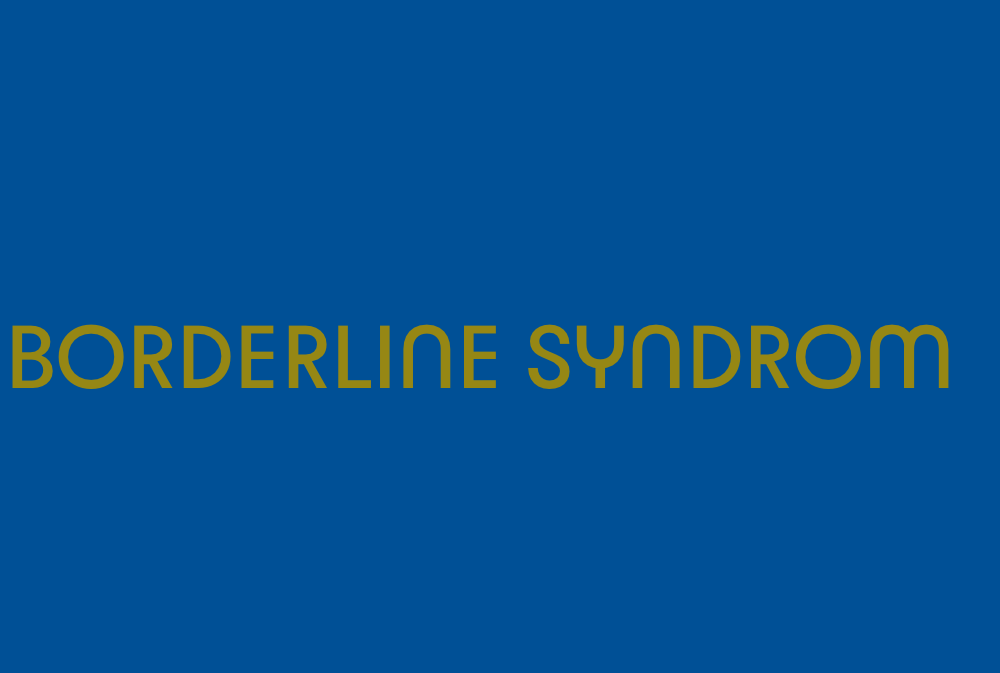Borderline Personality
Free Books on Borderline Personality Disorder
Browse our free collection of e-books on Borderline Personality Disorder for valuable insights and practical strategies – discover how to navigate BPD challenges with ease.

At The Meehl Foundation, we understand the importance of providing assistance to individuals grappling with the intricacies of Borderline Personality Disorder.
Our collection of free e-books offers valuable insights and practical strategies for managing BPD symptoms effectively. With topics ranging from coping strategies and mindfulness practices to understanding BPD relationships, these resources serve as a beacon of support for those seeking to enhance their quality of life amidst the complexities of this mental health condition.
Join us on a journey towards empowerment and self-discovery as we explore the wealth of knowledge available through our free BPD e-books.
Key Takeaways
- Access resources like DBT workbooks for effective BPD management.
- Use mindfulness books for emotional awareness and stability.
- Consider specialized residential program literature for comprehensive BPD treatment.
- Explore self-help books for coping strategies and relationship guidance.
Comprehensive Guide to BPD
In our exploration of the Comprehensive Guide to BPD, we delve into the intricate landscape of symptoms, treatment approaches, and the profound impact this disorder has on individuals' lives. This book offers valuable insights into the challenges faced by individuals with Borderline Personality Disorder in managing their emotions, behavior, and relationships. It emphasizes the importance of effective treatment strategies, such as Dialectical Behavior Therapy (DBT), to help individuals with BPD improve their quality of life. The guide sheds light on the Meehl Foundation's specialized residential program for BPD, which focuses on empowering individuals to take control and cope with the disorder.
Furthermore, the Comprehensive Guide to BPD highlights the resources and support available for individuals dealing with this condition. It provides valuable information and guidance for managing Borderline Personality Disorder effectively. By equipping individuals with the knowledge and tools to navigate the complexities of BPD, this book plays a crucial role in empowering individuals to take charge of their mental health and well-being.
Coping Strategies for BPD

Utilizing effective coping strategies is essential for individuals with Borderline Personality Disorder to enhance their emotional regulation and overall well-being. Coping strategies for BPD are crucial tools that can make a significant difference in managing the challenges that come with this condition.
Here are key points to consider when developing coping strategies:
- Increasing distress tolerance: Learning techniques to cope with distressing emotions can help individuals navigate intense feelings without resorting to harmful behaviors.
- Building self-confidence: Developing a sense of self-worth and confidence can provide a solid foundation for managing the ups and downs of BPD symptoms.
- Identifying triggers and implementing healthy coping mechanisms: Recognizing what triggers emotional responses and having a toolbox of healthy coping mechanisms can empower individuals to respond in more adaptive ways.
Understanding BPD Relationships
When navigating Borderline Personality Disorder relationships, understanding the complexities of intense emotions and fear of abandonment is crucial. Individuals with BPD often experience extreme emotional highs and lows, leading to challenges in forming and maintaining stable connections. Trust issues and rejection sensitivity can contribute to difficulties in establishing healthy relationships, as individuals may oscillate between idealizing and devaluing their partners. The fear of abandonment can trigger intense reactions and behaviors, further complicating relationship dynamics.
Recognizing patterns of intense attachment, emotional dysregulation, and fear of intimacy is essential for understanding BPD relationships. Effective communication, setting clear boundaries, and seeking therapy can be beneficial in managing and improving these relationships. By addressing the underlying emotional struggles and learning healthy coping mechanisms, individuals with BPD can work towards fostering more stable and fulfilling connections with others. It's important to approach BPD relationships with empathy, patience, and a willingness to learn and grow together.
Mindfulness Practices for BPD

Navigating the complexities of Borderline Personality Disorder relationships, one effective approach is incorporating mindfulness practices to enhance emotional awareness and regulate intense feelings effectively. Mindfulness techniques offer individuals with BPD a way to cultivate a deeper understanding of their emotions and behaviors, leading to improved self-regulation and enhanced well-being. Research supports the benefits of mindfulness-based interventions for individuals with BPD, indicating a reduction in impulsivity and an overall enhancement in quality of life.
- Mindfulness practices aid in increasing emotional awareness and regulating intense emotions effectively.
- Mindfulness techniques, such as deep breathing and body scans, can enhance self-soothing abilities and decrease reactivity to triggers.
- Regular mindfulness practice has been shown to lower anxiety and depression symptoms in individuals with BPD.
Incorporating mindfulness into daily routines can bring about resilience, emotional stability, and healthier coping mechanisms for individuals managing BPD.
Self-Care Techniques for BPD
In managing Borderline Personality Disorder, effective self-care techniques play a crucial role in regulating intense emotions and reducing impulsive behaviors. Mindfulness practices, such as deep breathing and meditation, can be powerful tools for individuals with BPD. These techniques help in staying present and managing overwhelming emotions.
Regular physical exercise is also beneficial as it aids in emotion regulation and enhances overall well-being. Establishing a structured daily routine can offer stability and predictability, which are especially important for individuals with BPD who may struggle with impulsivity.
Additionally, seeking therapy, particularly approaches like Dialectical Behavior Therapy (DBT), can equip individuals with coping skills and further enhance self-care strategies for managing symptoms of BPD. By incorporating these self-care techniques into daily life, individuals with BPD can better navigate their emotions and improve their quality of life.
Frequently Asked Questions
What Is the Best Book for Borderline Personality Disorder?
The best book for borderline personality disorder depends on individual needs. Consider 'Borderline Personality Disorder: New Perspectives' for fresh insights, 'Mindfulness for BPD' for practical techniques, 'I Hate You–Don't Leave Me' for valuable insights, 'DBT Skills Workbook for Anxiety' for anxiety management, and 'Loving Someone with BPD' for maintaining healthy relationships.
Each offers unique perspectives and tools to navigate the complexities of BPD. Explore these options to find what resonates best with your journey.
What Are the 4 Types of Borderline Personality Disorder?
We can identify four types of Borderline Personality Disorder:
- Discouraged Borderline,
- Impulsive Borderline,
- Petulant Borderline, and
- Self-Destructive Borderline.
Each type presents unique challenges. Discouraged Borderline individuals struggle with feelings of inadequacy, seeking reassurance. Impulsive Borderline individuals face issues with impulsivity and emotional regulation. Petulant Borderline individuals exhibit passive-aggressive behaviors. Self-Destructive Borderline individuals engage in self-harm, fear abandonment, and experience intense mood swings.
Understanding these distinctions is crucial for effective support and treatment.
What Is the Life Expectancy of a Person With Borderline Personality Disorder?
When considering the life expectancy of individuals with borderline personality disorder, it's crucial to acknowledge the impact of various factors such as comorbid conditions, self-harm behaviors, and substance abuse.
Studies indicate an increased risk of premature mortality in this population, with suicide being a significant contributor.
Access to appropriate treatment and support can significantly improve prognosis and life expectancy for those living with BPD.
What Is the Hardest Mental Illness to Live With?
Living with a mental illness presents unique challenges, but some may find Borderline Personality Disorder to be particularly difficult due to its intense emotional dysregulation and unstable relationships.
The constant mood swings, impulsive actions, and fear of abandonment can make everyday life a struggle.
Seeking effective treatment like Dialectical Behavior Therapy can help manage symptoms and improve overall well-being for those navigating the complexities of BPD.
Conclusion
In conclusion, these free e-books on Borderline Personality Disorder offer a treasure trove of knowledge and strategies to navigate the turbulent waters of BPD.
So, grab your virtual life jacket and dive into the world of understanding, coping, and healing.
Let these resources be your compass as you sail through the stormy seas of emotions and relationships.
Bon voyage to a brighter tomorrow!
Paul is a storyteller at heart, sharing narratives illuminating the lived experiences of those with BPD. His work encompasses a range of topics, from personal journeys to the challenges and triumphs faced by individuals navigating life with BPD. Paul’s authentic and engaging writing style invites readers into the world of BPD, promoting awareness and empathy.
Borderline Personality
Borderline Personality Disorder Promiscuity
Beneath the surface of Borderline Personality Disorder lies a complex relationship with promiscuity, inviting a deeper exploration into the intertwined realms of emotion and behavior.

Exploring the intricate connection between Borderline Personality Disorder (BPD) and promiscuity, it becomes essential to reflect upon the underlying causes of such behaviors.
The correlation between BPD and promiscuity goes beyond surface-level observations, delving into a realm where emotions, impulsivity, and coping mechanisms intertwine.
Let's unravel the complexities surrounding this phenomenon to shed light on the nuanced relationship between BPD and promiscuity, offering insights that may challenge preconceived notions and spark further contemplation on the subject.
Key Takeaways
- Promiscuity in BPD can stem from intense emotional turmoil.
- Trust issues and instability in relationships are common consequences.
- Developing coping strategies and seeking therapy are essential.
- Combating stigma and offering support can aid in recovery.
Understanding Borderline Personality Disorder
In understanding Borderline Personality Disorder, one can't overlook the complexity of the emotional turmoil individuals with BPD experience. People with BPD often grapple with intense emotions and impulsivity, which can manifest in reckless behaviors like promiscuity.
Sexual behavior in BPD individuals may serve as a coping mechanism, a way to express their overwhelming emotions or seek validation. This impulsivity and emotional intensity can lead to difficulties in managing relationships and personal well-being.
Seeking professional help is essential for those with BPD to address these challenges effectively. Therapists can assist in developing coping strategies tailored to the individual's needs, helping them navigate their emotional landscape and reduce impulsive behaviors.
Impact of Promiscuity on Relationships

Understanding the impact of promiscuity on relationships for individuals with borderline personality disorder reveals the intricate challenges they face in establishing and maintaining emotional connections.
High levels of promiscuity in BPD can lead to emotional turmoil and conflicts within intimate relationships. Trust issues often arise due to the impulsive behavior associated with promiscuity, hindering the development of deep emotional intimacy with partners.
The cycle of unstable relationships caused by promiscuous behavior contributes to ongoing emotional distress for individuals with BPD. This maladaptive coping mechanism further complicates the ability to form healthy and lasting relationships.
The struggle to balance the desire for intimacy with the impulsivity of promiscuity can create significant barriers to establishing trust and stability in relationships. Individuals with BPD may find themselves caught in a pattern of seeking temporary connections as a way to manage their emotional needs, ultimately impacting their ability to cultivate meaningful and fulfilling relationships.
Coping Mechanisms for Promiscuous Behaviors
Exploring effective strategies to address and manage promiscuous behaviors in individuals with Borderline Personality Disorder reveals valuable insights into fostering healthier coping mechanisms. When dealing with promiscuity in BPD, it's crucial to consider the emotional responses and underlying triggers that contribute to this behavior.
Here are some key coping mechanisms to help individuals navigate promiscuous behaviors:
- Develop self-soothing techniques: Creating healthy ways to soothe oneself can help manage the intense emotions that may drive promiscuous behaviors.
- Make selective partner choices: Choosing partners based on respect and mutual understanding can promote healthier relationships and reduce impulsive behavior.
- Seek validation through internal sources: Encouraging self-worth from within rather than seeking external validation can decrease the reliance on multiple partners for validation.
- Address fear of abandonment: Working with a therapist to confront and manage the fear of abandonment can lead to more stable and fulfilling relationships.
- Enhance emotional stability: Learning to regulate emotions effectively can contribute to a sense of stability and reduce the urge for risky behaviors like promiscuity.
Therapeutic Approaches for BPD and Promiscuity

Navigating the complexities of Borderline Personality Disorder and managing promiscuous behaviors often involves implementing therapeutic approaches that target underlying emotional triggers and promote healthier coping mechanisms.
Dialectical Behavioral Therapy (DBT) has shown effectiveness in addressing promiscuity in individuals with BPD by focusing on building skills for emotional management and self-regulation. Cognitive Behavioral Therapy (CBT) is another valuable approach that helps individuals develop coping techniques to manage impulsive behaviors like promiscuity.
Through therapy interventions, individuals can learn to alter behaviors by changing thought patterns and implementing healthier coping mechanisms to address hypersexuality in BPD. These therapeutic approaches emphasize skills development to assist individuals in controlling and reducing promiscuous behaviors.
Strategies also include a focus on developing healthier relationship patterns, self-regulation, and emotional management to support individuals with BPD in managing promiscuity effectively.
Addressing Stigma Surrounding BPD Promiscuity
Addressing the stigma surrounding promiscuity in individuals with Borderline Personality Disorder is crucial for promoting understanding and providing appropriate support. It's essential to recognize that sexual promiscuity in BPD can be an intentional behavior, serving as a coping mechanism to elicit positive emotional responses and alleviate feelings of emptiness. Research indicates that individuals with BPD may engage in promiscuous behavior more frequently than the general population.
Understanding the intentional nature of this behavior is key to offering tailored interventions that address the underlying emotional turmoil driving these actions. By combating the stigma associated with BPD-related promiscuity, we can create a more supportive environment where individuals feel comfortable seeking help and gaining a deeper understanding of their struggles.
Offering support and empathy to those grappling with intense emotions is crucial in helping them navigate their challenges and work towards healing.
Frequently Asked Questions
Is Promiscuity a Symptom of Borderline Personality Disorder?
Yes, promiscuity can be a symptom of borderline personality disorder. Individuals with BPD may engage in promiscuous behavior as a coping mechanism for emotional distress. This behavior can stem from feelings of emptiness and a desire for validation.
It's important to understand that promiscuity in BPD is deliberate and intentional, serving as a response to intense emotional states. Seeking professional help and therapy can assist in addressing these underlying issues.
Is Hypersexuality a Symptom of Bpd?
Yes, hypersexuality can be a symptom of BPD. It manifests as compulsive sexual behavior driven by intense emotional states. This preoccupation with sexual thoughts and activities can disrupt daily life and relationships.
Seeking treatment, like DBT or CBT, can help manage this symptom. Understanding the underlying causes and effective management strategies is crucial for individuals dealing with hypersexuality as a part of Borderline Personality Disorder.
What Is the Best Partner for Someone With Bpd?
We believe the best partner for someone with BPD is understanding, empathetic, and patient. Consistent support, validation, and clear communication can stabilize relationships. Partners willing to learn about BPD, practice healthy boundaries, and engage in therapy together enhance dynamics.
Reassurance, validation, and open dialogue contribute to secure relationships. Emotional connection, trust, and commitment foster stability and security. Prioritizing these qualities can lead to fulfilling and supportive partnerships for individuals with BPD.
What Does a BPD Episode Look Like?
During a BPD episode, we may experience intense emotional triggers leading to impulsive behaviors. These episodes can involve heightened anxiety, mood swings, and feelings of emptiness.
Our actions might become erratic, impacting relationships and personal well-being. It's crucial to recognize these signs and seek support to navigate through these challenging times.
Professional help and coping strategies can assist in managing these episodes effectively.
Conclusion
In conclusion, individuals with Borderline Personality Disorder may engage in promiscuous behaviors as a coping mechanism to alleviate feelings of emptiness and seek positive emotional responses.
It's crucial to address the complex relationship between BPD and promiscuity through therapeutic approaches and destigmatization.
Research has shown that individuals with BPD are significantly more likely to report coercion in sexual encounters, highlighting the importance of understanding and supporting those with this disorder.
Paul is a storyteller at heart, sharing narratives illuminating the lived experiences of those with BPD. His work encompasses a range of topics, from personal journeys to the challenges and triumphs faced by individuals navigating life with BPD. Paul’s authentic and engaging writing style invites readers into the world of BPD, promoting awareness and empathy.
Borderline Personality
Average Life Expectancy of Someone With Borderline Personality Disorder
Buckle up for a revealing journey into the complex factors influencing the average life expectancy of individuals with Borderline Personality Disorder.

Regarding the typical lifespan of those diagnosed with Borderline Personality Disorder (BPD), it resembles making one’s way through a complicated labyrinth. The details surrounding this issue uncover a grim truth—although studies highlight an increased danger of early death, there exists a critical demand to investigate the root causes behind this worrying pattern.
From the impact of mental health comorbidities to the influence of social determinants, understanding the nuances of longevity in BPD patients prompts a critical dialogue on proactive interventions and holistic support systems that can potentially alter these stark statistics.
Key Takeaways
- BPD increases risk of premature death due to emotional dysregulation and risky behaviors.
- Early intervention and support systems are crucial for improving outcomes.
- Suicidal behavior is a significant risk for premature death.
- Engage in regular physical activity and maintain a healthy lifestyle.
Impact of BPD on Longevity
When considering the impact of Borderline Personality Disorder (BPD) on longevity, we must acknowledge the stark reality that individuals with BPD face a significantly higher risk of premature death compared to the general population. This heightened risk stems from various factors such as fears of abandonment, which are commonly experienced by individuals with personality disorders like BPD. These fears can lead to emotional dysregulation and impulsive behaviors that may contribute to premature death through increased suicide rates or risky behaviors.
Furthermore, individuals with BPD often struggle with managing their emotions and relationships, which can result in a lack of social support and exacerbate feelings of isolation and hopelessness. These psychological challenges, coupled with the physical toll of chronic stress on the body, can predispose individuals with BPD to a range of health issues that may shorten their lifespan.
In addressing the impact of BPD on longevity, it becomes evident that early intervention, comprehensive treatment approaches, and support systems are crucial in mitigating the risks associated with this disorder and improving outcomes for individuals affected by it.
Factors Influencing Life Expectancy

Factors influencing the life expectancy of individuals with Borderline Personality Disorder encompass a complex interplay of various elements, including but not limited to psychological, social, and physiological factors. Understanding these factors is crucial in improving the quality of life and longevity for individuals with BPD.
- Suicidal behavior: Individuals with BPD have a heightened risk of premature death, often due to suicide attempts.
- Quality of life: The overall well-being and satisfaction with life can impact the life expectancy of individuals with BPD.
- Predictors of premature death: Factors such as male sex, lower socioeconomic status, drug use history, high BMI, and psychiatric medications can predict premature non-suicidal death in BPD patients.
- Recovery: Those who don't achieve recovery from BPD face a disproportionately higher risk of premature death.
- Prevention strategies: Addressing poor health behaviors, reducing psychiatric medications, and managing substance abuse can help prevent or delay premature death in individuals with BPD.
Understanding and addressing these factors is essential in improving outcomes for individuals with Borderline Personality Disorder.
Health Risks Associated With BPD
Addressing the health risks associated with Borderline Personality Disorder is crucial for improving outcomes and longevity for individuals diagnosed with this condition. Those with BPD face an elevated risk of premature death compared to the general population, with factors such as suicide, cardiovascular issues, substance-related complications, and accidents contributing to this heightened vulnerability. Symptoms of BPD, including fear of abandonment, can further exacerbate these risks.
Predictors of premature nonsuicidal death in BPD patients encompass male sex, lower socioeconomic status, history of drug use, psychiatric hospitalizations, high BMI, and psychiatric medications. It's noteworthy that BPD patients who don't achieve recovery are at a disproportionately higher risk of premature death.
To mitigate these risks, interventions such as addressing poor health behaviors, reducing psychiatric medications, and managing substance abuse are crucial. By recognizing and actively managing these health risks, individuals with BPD can work towards improving their overall health outcomes and prolonging their lifespan.
Strategies for Prolonging Life

To enhance longevity and improve overall well-being for individuals with Borderline Personality Disorder, it's essential to implement strategies that focus on prolonging life. For patients with BPD, especially young adults, incorporating the following strategies can make a significant impact:
- Engage in regular physical activity and maintain a healthy lifestyle to reduce the risk of physical health complications associated with BPD.
- Seek regular medical check-ups and adhere to prescribed treatments from specialized treatment programs to manage any co-occurring health conditions effectively.
- Develop coping skills and strategies for managing emotional distress and impulsivity to prevent self-harm and reduce the risk of premature death.
- Build a strong support network of friends, family, and mental health professionals to provide ongoing emotional support and assistance in times of crisis.
- Stay informed about the latest research and treatment options for BPD to access appropriate care and interventions that can improve overall well-being and longevity.
Support Systems for BPD Individuals
Support systems play a crucial role in the well-being and recovery journey of individuals with borderline personality disorder (BPD), offering a range of therapeutic interventions and social connections. For young people with BPD, having a supportive environment during childhood and adolescence can significantly impact their long-term outcomes. Here are some key support systems that can benefit individuals with BPD:
| Support System | Description |
|---|---|
| Therapy | Individual and group therapy sessions can help individuals learn coping mechanisms and improve interpersonal skills. |
| Medication | Psychiatric medications may be prescribed to manage specific symptoms of BPD, such as depression or anxiety. |
| Peer Support Groups | Engaging with peers who understand the challenges of BPD can provide a sense of belonging and reduce feelings of isolation. |
| Family Therapy | Involving family members in therapy sessions can foster better communication and understanding, benefiting both the individual and their loved ones. |
| Online Resources | Forums and educational websites offer valuable information and a supportive community for individuals seeking to learn more about BPD. |
Frequently Asked Questions
Does BPD Affect Life Expectancy?
Yes, BPD can impact life expectancy. Individuals with BPD face a higher risk of premature death due to suicide and other causes like cardiovascular issues, substance-related complications, and accidents. Factors such as male sex, lower socioeconomic status, and drug use history can predict premature death in BPD patients.
Achieving recovery is crucial, as those who don't recover are at a disproportionately higher risk of premature death. Addressing health behaviors and substance abuse can help prevent early mortality in individuals with BPD.
Can Someone With Borderline Personality Disorder Live a Normal Life?
Sure thing! Absolutely, individuals with borderline personality disorder can lead fulfilling lives. With proper treatment and support, we can develop coping skills, build strong networks, and engage in therapy to manage symptoms.
It's about dedication to self-care and treatment. Recovery is possible, and many experience significant improvements over time. By focusing on therapy, medication, and healthy choices, we can positively impact our prognosis and achieve a sense of normalcy and well-being.
What Is the Hardest Mental Illness to Live With?
Living with a mental illness can be incredibly challenging, but some conditions present unique difficulties. Borderline Personality Disorder (BPD) is often considered one of the hardest due to its complex symptoms like impulsivity and emotional instability.
Individuals with BPD may struggle with intense mood swings and forming stable relationships, making everyday life tough. It requires dedicated effort to manage symptoms and find stability, but with the right support and treatment, it's possible to lead a fulfilling life.
What Can Untreated Borderline Personality Disorder Lead To?
We know that untreated Borderline Personality Disorder (BPD) can lead to a myriad of serious health issues beyond just suicide risk. Factors like drug use, high BMI, and psychiatric history can predict premature death. Addressing poor health behaviors and substance abuse is crucial in preventing early demise.
Providing clinical attention to nonsuicidal deaths in individuals with BPD is vital for effective care. Early intervention and preventive measures are key to improving outcomes for those with untreated BPD.
Conclusion
As we navigate the complexities of Borderline Personality Disorder, we must remember that each individual's journey is unique.
Just like a delicate butterfly emerging from its chrysalis, those with BPD can find strength and hope in their transformation.
By addressing risk factors, seeking support, and prioritizing self-care, we can extend our lifespans and embrace the beauty of life.
Let's spread our wings and soar towards a brighter future together.
Paul is a storyteller at heart, sharing narratives illuminating the lived experiences of those with BPD. His work encompasses a range of topics, from personal journeys to the challenges and triumphs faced by individuals navigating life with BPD. Paul’s authentic and engaging writing style invites readers into the world of BPD, promoting awareness and empathy.
Borderline Personality
How to Parent a Teenager With Borderline Personality Disorder
In the tumultuous journey of parenting a teenager with Borderline Personality Disorder, understanding effective strategies is essential, but there's more to discover…

Setting out on the journey of parenting a teenager with Borderline Personality Disorder can feel like navigating a vessel through stormy seas, with the water’s direction changing without warning. Though the challenges may seem overwhelming, there is comfort to be found in gaining the understanding needed to provide the crucial support and guidance that brings promise.
By embracing effective strategies and seeking professional help, we can create a roadmap that leads to a more stable and fulfilling relationship with our teen.
Let's explore together how to navigate this complex terrain with compassion and resilience.
Key Takeaways
- Early recognition crucial for treatment
- Create safe environment with clear boundaries
- Encourage positive coping skills
- Seek professional help and therapy
Understanding Borderline Personality Disorder Symptoms
As parents of teenagers with Borderline Personality Disorder, it's essential to understand the symptoms that characterize this challenging condition. Borderline Personality Disorder (BPD) in teens often manifests as a fear of abandonment, unstable relationships, impulsive behaviors, and feelings of emptiness. Adolescents with BPD may struggle with behavioral dysregulation, experience difficulties in relationships, and exhibit intense emotional reactions.
It's crucial to recognize that BPD symptoms typically emerge around the ages of 14 or 15, affecting approximately 1.6% to 5.9% of adolescents. When teens are diagnosed with BPD, it's important to address these symptoms early on to effectively manage and treat the condition. By acknowledging the emotional instability that teens with BPD feel and understanding the impact it has on their daily lives, parents can provide the necessary support and guidance to help their children navigate the challenges associated with this disorder.
Effective Parenting Strategies for BPD Teens

Supporting teenagers with Borderline Personality Disorder involves implementing tailored parenting strategies that prioritize their emotional well-being and stability. For teens with BPD, it's crucial to provide a safe space within the family environment, with clear boundaries and consistent support.
Encouraging the development of positive coping skills, such as engaging in physical activities or practicing relaxation techniques, can assist in managing overwhelming emotions that are common in teens with BPD. Additionally, being mindful of the impact of our behavior and attitudes on our teens can foster a more understanding and supportive relationship.
Due to the high rates of suicidal behaviors among teens with BPD, ensuring access to professional help and therapy is essential. By actively seeking appropriate medical care and treatment, we can help our teens navigate the challenges associated with Borderline Personality Disorder and work towards a more stable and fulfilling life.
Setting Boundaries and Consistency
Establishing clear boundaries and maintaining consistency is crucial when parenting a teenager with Borderline Personality Disorder (BPD). Teenagers with BPD often struggle with emotional dysregulation, making boundaries essential for their sense of security and stability. Here are some key points to consider:
- Clearly Defined Boundaries: Establish specific rules and limits to provide a framework for behavior expectations.
- Consistent Enforcement: Enforce boundaries calmly and consistently to create a predictable environment for the teen.
- Preventing Manipulation: Setting firm boundaries helps prevent manipulative behaviors that can arise in teens with BPD.
- Flexibility Within Limits: While consistency is vital, being flexible within established boundaries can accommodate the unique needs of a teenager with BPD.
- Promoting Emotional Regulation: Consistent boundaries can aid in promoting emotional regulation and minimizing outbursts.
Supporting Teen's Emotional Regulation

To assist your teenager with Borderline Personality Disorder in managing their intense emotions effectively, consider teaching them coping skills like deep breathing and progressive muscle relaxation. These techniques can help your teen regulate their emotions when they feel overwhelmed.
Encouraging journaling or expressing feelings through art can also provide a healthy outlet for their emotions. Mindfulness exercises, such as grounding techniques, can support your teen in staying present and reducing emotional intensity.
Creating a safe space for your teenager to express their emotions without judgment is crucial. This fosters emotional security and stability, allowing your teen to feel heard and understood.
Implementing a routine that includes self-care activities like exercise, healthy eating, and sufficient sleep can further support your teen's emotional regulation. By incorporating these strategies into your teen's daily life, you can help them navigate their intense emotions in a more manageable way.
Self-Care Tips for Parents of BPD Teens
Navigating the challenges of parenting a teenager with Borderline Personality Disorder can be emotionally taxing, making self-care essential for maintaining resilience and well-being. To support yourself in this journey, consider the following self-care tips:
- Engage in regular self-care activities to manage stress and prevent burnout.
- Maintain boundaries and seek support from therapists or support groups to prioritize your well-being.
- Practice mindfulness techniques and relaxation exercises to stay grounded and emotionally balanced.
- Educate yourself about BPD, therapy options, and effective communication strategies to enhance your parenting skills.
- Seek respite care or temporary support to recharge and prevent emotional exhaustion while caring for your teen with BPD.
Frequently Asked Questions
How Do You Discipline a Child With Bpd?
When disciplining a child with BPD, it is essential to emphasize consistent boundaries and positive reinforcement. Harsh methods may exacerbate negative behaviors and emotional turmoil. Collaboration with mental health professionals allows for tailored behavior plans focused on emotional regulation and problem-solving skills.
This approach fosters a stable environment and helps the child manage intense emotions effectively.
What Not to Say to Someone With Bpd?
We should be mindful of our language when interacting with someone with BPD. Avoid phrases that invalidate their emotions like 'just doing it for attention' or dismiss their feelings with 'being dramatic.'
Never oversimplify by saying 'just get over it' or undermine their challenges with 'it's all in your head.'
Stay away from phrases that worsen shame like 'too sensitive.' Our words hold power; let's use them to uplift and support.
How to Deal With a Child Who Has Borderline Personality Disorder?
Dealing with a child who has Borderline Personality Disorder can be challenging. It's important to establish clear boundaries, provide a stable environment, and encourage seeking appropriate medical care. Developing positive coping skills is crucial.
Our behavior and attitudes greatly influence the child's emotional well-being. Guiding them to seek professional help is key for managing BPD symptoms effectively. Remember, support and understanding play a significant role in helping them navigate through this condition.
What Triggers a Person With Borderline Personality Disorder?
When someone with Borderline Personality Disorder experiences triggers, various factors can lead to intense emotional responses. Environmental stressors, traumatic experiences, and perceived threats to relationships can all set off emotional instability.
Interpersonal conflicts and feelings of rejection or abandonment are common triggers for fear of abandonment and emotional dysregulation. Understanding these triggers can help us provide better support and guidance to individuals with BPD.
Conclusion
In parenting a teenager with Borderline Personality Disorder, remember to be patient and persistent in practicing positive parenting approaches. Boundaries, balance, and bolstering coping skills are key components in navigating the challenges of BPD.
By seeking support, staying strong, and showing compassion, you can help your teen thrive. Remember, resilience, resources, and relationships are essential in guiding your teen towards healing and hope.
Paul is a storyteller at heart, sharing narratives illuminating the lived experiences of those with BPD. His work encompasses a range of topics, from personal journeys to the challenges and triumphs faced by individuals navigating life with BPD. Paul’s authentic and engaging writing style invites readers into the world of BPD, promoting awareness and empathy.
-

 Divorcing a Partner with Borderline3 weeks ago
Divorcing a Partner with Borderline3 weeks agoUnderstanding Borderline Personality in Divorce
-

 Borderline Personality4 weeks ago
Borderline Personality4 weeks agoStories of Hope: Triumph in BPD Relationships
-

 Managing or Understanding BPD3 weeks ago
Managing or Understanding BPD3 weeks agoHow Does a Borderline React to No Contact
-

 Borderline Personality4 weeks ago
Borderline Personality4 weeks agoBPD Experiences: Insights and Coping Techniques
-

 Borderline Personality4 weeks ago
Borderline Personality4 weeks agoBorderline Personality Disorder (BPD) Explained
-

 Managing or Understanding BPD3 weeks ago
Managing or Understanding BPD3 weeks agoHow to Spot the 4 Types of Borderline Personality Disorder
-

 Divorcing a Partner with Borderline3 weeks ago
Divorcing a Partner with Borderline3 weeks agoHow to Navigate Divorce with a Borderline Personality Disordered Spouse
-

 Managing or Understanding BPD3 weeks ago
Managing or Understanding BPD3 weeks agoHow to Communicate With Someone Who Has Borderline Personality Disorder














